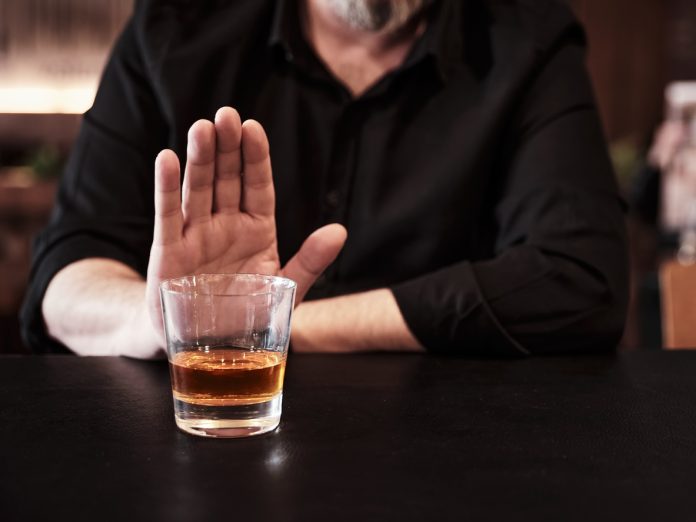Have you heard the term ‘sober curious?’ What is it, why is it causing so much interest, and how can you do it?
What is being sober curious?
Sober curious is a new buzzword for anyone wanting to explore their relationship with alcohol and cut down their alcohol intake. The term originated from a book published in 2019, called Sober Curious by Ruby Warrington, in which she explores the numerous benefits of choosing to live life without alcohol.
This followed the onset of Dry January in 2013 and Feb Fast in 2021. Both are movements aimed at helping people break the cycle of alcohol and experience the benefits of being alcohol-free.
There’s no shortage of interest in wanting to stop drinking. The percentage of adults who drink alcohol at least once a week in England has fallen from 54% in 2011 to 49% in 2021. During the same time period, the percentage of nondrinkers increased from 16% to 20%, and the percentage of adults who drink more than 14 units a week has also fallen from 26% to 21%.
Online searches for non-alcoholic drinks and non-alcoholic spirits have increased by 3,690% and 750%, respectively. The non-alcoholic drinks market is booming. The Wine Society reported that sales of non-alcoholic drinks rose by 33.3% in 2023.
Why is it causing so much interest?
Let’s face it – alcohol is a poison, an addictive drug and a carcinogen. It’s frankly surprising it’s legal at all! But our lives have been irrevocably intertwined with alcohol. No Friday night out, dinner party, birthday bash, Sunday lunch or wedding would be complete without it. And yet alcohol is so bad for our health.
After a good night out, there’s the horrific hangover. If we regularly drink too much, the short-term effects include headaches, acid reflux, insomnia, daytime fatigue, being unable to think, reduced work productivity, and relationship issues.
In the long term, excess alcohol is linked to stress, anxiety, depression and other mental health conditions. Drinking more than the recommended limits increases the risk of liver disease, high blood pressure, heart disease, stroke, type-2 diabetes, cancer and dementia. Heavy drinking is a cause of malnutrition and also weakens the immune system, increasing the risk of serious illnesses such as sepsis. Alcohol causes accidents and frequent trips to A&E.
Nowadays, especially in the cost-of-living crisis, as alcohol is very expensive, we are all beginning to realise that ditching alcohol – or at least having less of it – has significant advantages. In the words of Ruby Warrington, being sober curious leads to ‘blissful sleep, greater focus, deep connection and limitless presence.’ What’s not to like?
Sober Curious? Here’s how to do it
So if you, like me, think sober curiosity is a good thing, here are some pointers listed below on how to become sober curious.
- Ask yourself why you drink alcohol
- Be honest with yourself. Are you using alcohol as a medicine or a crutch to help you with some sort of stress, relationship or work issue? If so, it’s time to look for other ways of dealing with this and reducing the alcohol. Drinking can be a habit, and you may drink when you are bored or lonely. In this case, you need to find a hobby or a pastime to do instead.
- Look out for others who feel the same as you
- If you look and listen there will often be one or two others in your group who are drinking very little or nothing at all. Gravitate towards them – there is safety in numbers.
- Plan ahead
- When you go to an event, plan what you will drink and what you will say to the others present. Be assertive – you might want to say, ‘It’s a personal choice’ or ‘I just feel better without alcohol.’ You can always be the designated driver. Once the event is underway, the moment has passed, and everyone will forget you’re not drinking.
- Create your own drink
- There’s a fabulous selection of non-alcoholic drinks and mocktails. Give them a go and work out your favourite. Just drinking fizzy mineral water with lime or blackcurrant cordial is a good option or favourite tonic water. It helps to have an idea in your head on arrival.
- Go on a course
- There are several online courses, for example, those run by Club Soda. These are aimed at how to stop drinking and how to drink mindfully.
- Write down how you are feeling
- As you start to say ‘No’ to alcohol you will notice your head feels clearer, your thoughts are sharper, you have more energy and you feel brighter and more in control. Write it down. Keeping a journal has many benefits. You can revisit this whenever you like to remind yourself how much better you feel.
- Consider mindful drinking
- Mindful drinking is part of being sober curious. It means thinking about what you want to drink and sticking to your plan. The idea is to really appreciate your drink, drink it slowly and savour every mouthful. Decide how many drinks you will have and then stop. You need to stay in control of what you are doing.
- Can being sober curious fail?
- Yes, no one will have a straight passage. In fact, if a person has become alcohol dependent, they will need more structured professional help. If you’ve tried and failed, see your GP. If you have an alcohol addiction, it is dangerous to stop drinking on your own, and you must seek professional help.
For advice and support, click here – NHS – Alcohol Support.
- Join in alcohol-free events
- Plenty of events don’t involve alcohol! If you are sober and curious, why not take up cycling, join a book club, play Scrabble, take up yoga or go hiking? There are many things you can do in your spare time that don’t involve alcohol.
Final thoughts on being sober curious
Sober curiosity is a good thing. I, for one, am embracing it. I’ve noticed I sleep so much better without alcohol, and sleep is essential for a happy, productive existence. We all want to stay in good health, age well and have a disability-free old age. Minimising alcohol is a very necessary tool to achieve these objectives.
- Are you feeling sober curious?
- What can you do to get started?
For more information
This piece was written and provided by Dr Deborah Lee, Dr Fox Online Pharmacy











